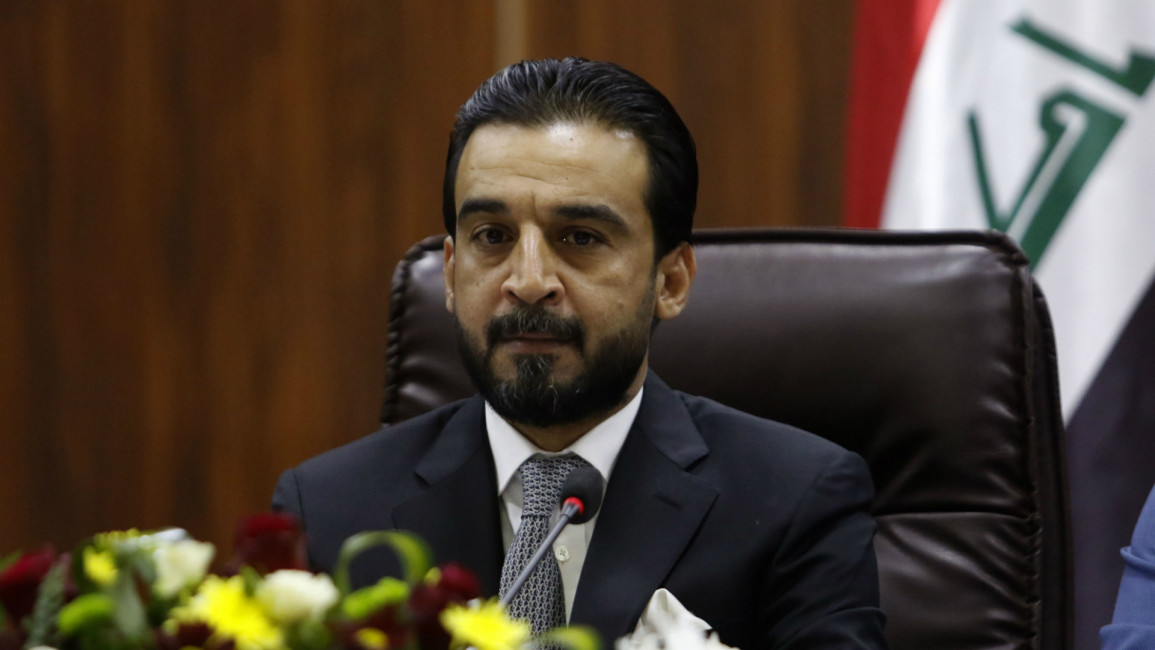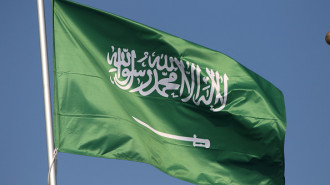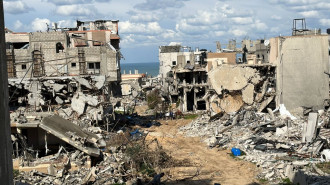Former Iraqi parliament speaker Mohammed al-Halbousi warns against arming local forces with heavy weaponry
Former Speaker of the Iraqi parliament, Mohammed al-Halbousi, has raised serious concerns about the arming of local forces with advanced heavy weaponry, warning that such actions could spark internal conflicts, particularly in Iraq's disputed areas.
Halbousi's comments have sparked a backlash from officials in Iraqi Kurdistan, where regional forces have recently benefited from military aid.
In a post on the social media platform X, the influential Sunni leader from Anbar strongly opposed the distribution of heavy artillery to local forces, calling it a move that could jeopardise Iraq's fragile security situation.
"We categorically reject the arming of local forces, whose constitutional duty is limited to maintaining internal security within the boundaries of their responsibility, (with advanced heavy artillery)," Halbousi wrote. He specifically warned that such weaponry could be misused in ethnic or partisan conflicts, potentially destabilising provinces such as Nineveh and Kirkuk, which have long been areas of dispute between the federal government and the Kurdistan Regional Government (KRG).
Halbousi stressed that heavy weaponry should remain solely in the hands of the Iraqi army.
"This type of weaponry should be exclusively in the hands of the Iraqi army, whose capabilities and resources we continuously call to strengthen," he said, underscoring the importance of maintaining a unified national military force to avoid the fragmentation of power and influence.
Although Halbousi did not mention any specific groups by name, his remarks were interpreted as a response to the recent military aid delivered to the KRG's Peshmerga forces. In August, the United States sent a shipment of advanced military equipment to the KRG, which included heavy artillery aimed at bolstering the Peshmerga's ability to combat the Islamic State (ISIS).
Meanwhile, in a separate incident late on Sunday, Iraq's interior ministry reported that two ISIS militants were killed in Kirkuk after security forces surrounded them. The militants, wearing explosive vests, detonated their devices after being shot by security personnel.
The Peshmerga forces are officially part of Iraq's defence system under the country's 2005 permanent constitution. Despite this, Halbousi's comments were viewed as criticism of their growing military capabilities.
But what about the other militias?
Some Iraqis on the X platform questioned why Halbousi had not also raised concerns about pro-Iran militia groups, which are heavily armed with modern weaponry, including ballistic missiles and drones. These militias, some argued, pose a significant security risk, yet were not mentioned in Halbousi's statement.
Khalida Khalil, spokesperson for the Barzani Headquarters, the main office of Masoud Barzani, leader of the ruling Kurdistan Democratic Party (KDP), defended the Peshmerga against Halbousi's criticism.
She argued that the Peshmerga are not sectarian and have never sought to encroach on the rights of other groups. "They are constitutional, regular forces that defend the rights of their people and all components without discrimination," Khalil said in her response, stressing that the Peshmerga's role is to protect all ethnicities and religions within the Kurdistan Region and beyond.
The US Consulate in Erbil also defended the military aid provided to the Peshmerga, stating that the assistance is crucial for bolstering the security capabilities of the Kurdish forces. According to the consulate, the aid is intended to support the broader Iraqi-led efforts to ensure the enduring defeat of ISIS.
Joint operations between Baghdad and Kurdish forces have been ongoing in disputed territories, as both sides attempt to eradicate the remaining ISIS elements, who still exploit security gaps in provinces like Nineveh, Kirkuk, Salahaddin, and Diyala.
The semi-autonomous Kurdistan Region held a failed referendum for independence from Iraq, including the oil-rich city of Kirkuk, on 25 September 2017. The move backfired, and Iraqi forces expelled the Kurdish Peshmerga from the city a month later.
Kirkuk, along with parts of Diyala and Nineveh, are considered contested areas between the Iraqi federal government and the KRG. Article 140 of the Iraqi constitution outlines a process to determine whether these areas would remain part of Iraq or join the KRG. However, the implementation of these measures has been stalled since 2007, leaving the status of these territories unresolved.
The Peshmerga played a crucial role in halting ISIS's advance in 2014, during which the extremist group seized large swathes of Iraqi and Syrian territory. With significant support from the US-led coalition, the Peshmerga, alongside Iraqi forces, successfully pushed back ISIS, culminating in the group's territorial defeat in Iraq in 2017.
However, tensions between Baghdad and Erbil remain, particularly over the control of Kirkuk, which has changed hands multiple times in recent years.
Despite the territorial defeat of ISIS, the group continues to launch insurgent attacks, including bombings and assassinations, particularly in the disputed regions.
In November, Iraq's top court revoked the parliamentary membership of former Speaker Mohammed al-Halbousi on charges of forgery, bringing an end to the powerful Sunni politician's tenure.
Halbousi's remarks highlight the ongoing challenges facing Iraq, where issues of territorial control, military influence, and the distribution of weaponry continue to pose significant risks to the country's stability.







 Follow the Middle East's top stories in English at The New Arab on Google News
Follow the Middle East's top stories in English at The New Arab on Google News


![Palestinian schoolgirls [Getty]](/sites/default/files/styles/image_330x185/public/2175253376.jpeg?h=a5f2f23a&itok=_koz8LeK)